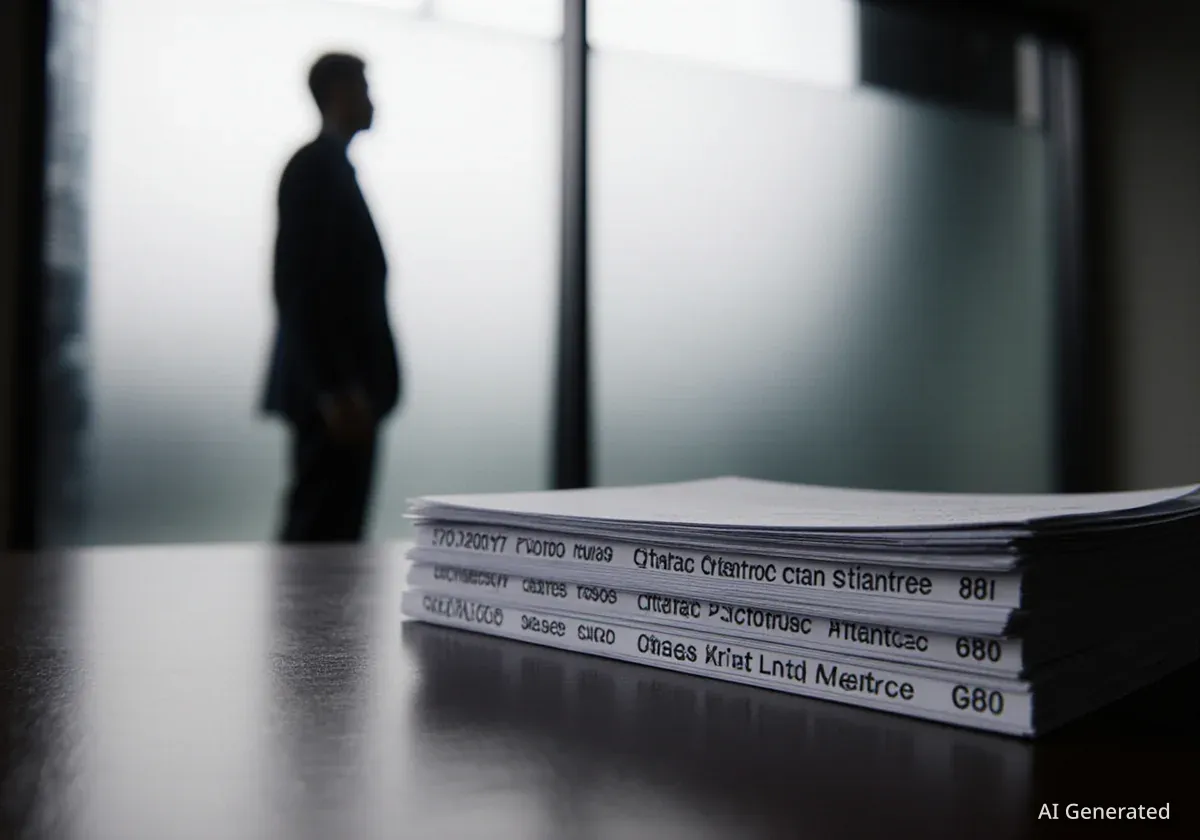A Philadelphia real estate agent has pleaded guilty to federal charges in connection with a loan fraud scheme that collected over $3 million from investors for property development projects that did not exist. The agent, Jonathan Barach, admitted to diverting the funds for personal use, including online gambling.
Key Takeaways
- Jonathan Barach, 46, a Philadelphia real estate agent, pleaded guilty to loan fraud charges.
- The scheme involved raising over $3 million from investors between July 2017 and April 2021.
- Barach falsely claimed the funds would be used to purchase and renovate properties for resale.
- Prosecutors stated that more than $1.4 million of the solicited funds were never repaid to the victims.
- The agent faces a potential sentence of up to 30 years in federal prison, with sentencing scheduled for February 2, 2026.
Agent Pleads Guilty to Federal Charges
Jonathan Barach, 46, has officially entered a guilty plea in a case involving a significant real estate investment fraud. As a co-founder and agent for The Barach Group LLC and TBG Real Estate LLC, Barach was a known figure in the Philadelphia property market. His plea confirms his role in a scheme that operated for nearly four years.
According to court documents, the fraudulent activities took place between July 2017 and April 2021. During this period, Barach solicited substantial sums of money from both individuals and businesses, building a portfolio of investments based on false pretenses.
Understanding Investment Fraud
Investment fraud involves deceptive practices in the stock or commodities markets that induce investors to make purchase or sale decisions on the basis of false information. In real estate, this often involves promising high returns on property developments that are either misrepresented or, as in this case, entirely fictitious.
Details of the Fictitious Property Scheme
Prosecutors outlined how Barach persuaded victims to invest their money. He presented them with purported opportunities to fund the purchase and renovation of properties, a common practice known as "property flipping." Investors were told their capital would be used alongside contractors to improve and resell homes for a profit.
However, federal officials confirmed that these investment projects were not real. The properties Barach claimed to be developing did not exist as investment vehicles, and the promises of returns were based on a complete fabrication. In total, he successfully raised more than $3 million through these deceptive claims.
"When Barach made these promises, the projects were not real," prosecutors stated, highlighting the core deception of the scheme.
A Cycle of Deception
To maintain the appearance of a legitimate business, Barach used some of the money from new investors to make payments to earlier lenders. This tactic, common in Ponzi-style schemes, creates an illusion of profitability and can encourage existing investors to reinvest or attract new victims.
Despite these partial repayments, a significant portion of the money was never returned. Officials reported that investors suffered a total loss exceeding $1.4 million, a sum that was never recovered.
Diversion of Funds for Personal Use
Instead of investing the money as promised, Barach diverted the millions of dollars for his own personal enrichment. An investigation revealed a clear trail of how the funds were misappropriated.
A significant amount of the investor capital was transferred directly into Barach's personal bank accounts. He also made frequent cash withdrawals. According to officials, a substantial portion of the stolen money was funneled into online accounts associated with casinos and sports betting platforms.
Financial Breakdown of the Fraud
- Total Amount Raised: Over $3 million
- Unrepaid Amount: Over $1.4 million
- Scheme Duration: 45 months (July 2017 - April 2021)
This use of funds demonstrates that the operation was not a failed business venture but a deliberate effort to defraud investors for personal gain. The money was not lost on legitimate real estate projects but was instead spent on personal expenses and gambling activities.
Sentencing and Potential Consequences
Following his guilty plea, Jonathan Barach is now awaiting sentencing. The hearing is scheduled to take place on February 2, 2026. The charges carry a substantial maximum penalty, reflecting the severity of the financial crimes committed.
Under federal sentencing guidelines, Barach could face up to 30 years in prison. The final sentence will be determined by a judge, who will consider the details of the case, the amount of financial loss, and other relevant factors. The case serves as a stark reminder of the risks associated with private investment deals and the importance of thorough due diligence.





